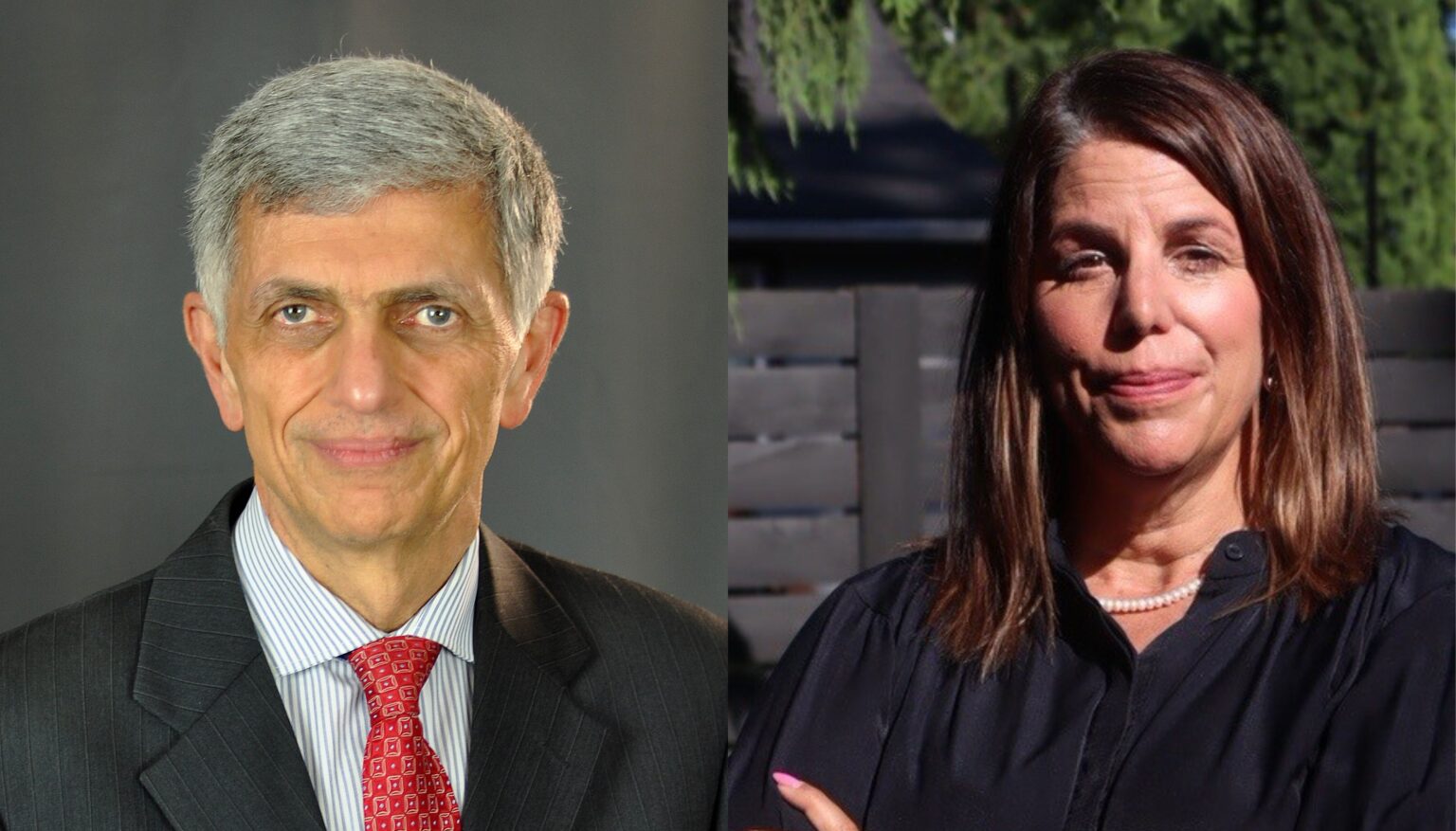Capitol Chatter: Putting The Oregon Way back into politics
Published 5:00 pm Thursday, January 20, 2022

- Capital Chatter square logo
Oregonians waste too much time arguing.
That is today’s topic: COVID-19. But before we get to the coronavirus, let’s look back to a gun control bill passed by the 2021 Legislature. Bear with me; these issues have similarities.
Trending
Almost every Oregonian agrees that firearms should be stored safely and securely. No one wants an accidental shooting. No one wants a mass shooting.
Almost everyone recognizes that most Oregon deaths involving firearms are suicides.
Almost everyone sees that the rise in homicides and other gun violence has shaken the Portland area and other parts of Oregon.
These common understandings should lead to collaborative solutions.
So far, Oregon has wasted that opportunity. The Legislature passed Senate Bill 554, which includes a mandate for safe storage of firearms. Yet gun storage is not comparable to many government regulations in which compliance can be readily observed, such as seat belt use. It generally won’t be known until after the fact, that a loaded gun was left unsecured.
That mandate in SB 554 did accomplish two things. It supported advocates’ belief that they were addressing gun violence. It reinforced opponents’ belief that the eventual goal was to take away their guns.
Trending
Imagine what could have happened if all sides of the gun debate instead had come together with intensive dedication to suicide prevention and voluntary safe storage of guns. They could have plowed common ground, being more effective in the long run, instead of staying entrenched far afield.
Which brings us to education and influence: People listen to folks whom they trust. When a neighbor talks about the quick-access pistol safe he’s bought, you’re more likely to think about getting one. When a colleague is unafraid to discuss her family struggles with mental health, the conversation can reduce the stigma and plant the seed for others to seek needed help. When friends say you’re going through a rough time and suggest they temporarily hang onto your firearms, you may be willing to swallow your pride and accept their help.
Which brings us back to COVID-19: We seem to be at an impasse – a political and social divide.
Though the majority of Oregonians have been vaccinated and many wear masks despite the inconvenience, others do not. And the state won’t come close to meeting Gov. Kate Brown’s goal of administering a million COVID-19 booster shots by February.
Where can we find common ground – not because of a governor’s goal but to meet Oregonians’ physical, educational and financial health?
A place to start: everyday conversations.
If you politely explain why you’re vaccinated or not, instead of trying to convince the other guy that he’s wrong because you’re right, you’re setting the example. Rather than being addicted to rage, you’re contributing to what was called The Oregon Way – collaboratively working toward acceptable, albeit imperfect, solutions.
On the other hand, if you’re someone who constantly puts down the other side, instead of actually listening to the whys of their decision, I humbly suggest you’re part of the problem.
For this year’s political candidates, for the 2022 Oregon Legislature that convenes in 10 days, and for everyone worried about our state’s future, this becomes an overarching question for many issues, not just the pandemic: For the good of our state, how do we contribute to The Oregon Way instead of ideological wins and losses?
One start could be a unified local or statewide campaign – involving groups often at odds – in support of frontline workers: Don’t take it out on them if the restaurant is short-staffed, the store runs out of goods, or the retailer requires/doesn’t require face coverings.
Nothing is gained by taking out frustrations on frontline workers. Instead, look to old and new examples of small steps and political changes.
• State Reps. Bill Post, R-Keizer, and Dan Rayfield, D-Corvallis, were far apart on the political spectrum. Yet as legislative newcomers, they had great fun collaborating on episodes of their “Behind the Scenes” video show about the Legislature.
Post now is a political consultant in Nevada but handling some Oregon campaigns. Rayfield is the Democrats’ choice for House speaker, succeeding Rep. Tina Kotek, D-Portland, whose resignation takes effect this week.
• This week in his first town hall of the year – a virtual one for Marion County residents – Sen. Ron Wyden announced the Bringing People Together initiative. Throughout the year, he will highlight examples of Oregonians working together in the spirit of The Oregon Way. Wyden invited people to send examples. He illustrated his initiative by mentioning bipartisan issues he worked on, such as saving a timber mill in John Day.
• Rep. Marty Wilde, D-Eugene, devoted his constituent newsletter this week to good work being done by Republican colleagues. Among his examples, Rep. Mark Owens of Crane is introducing legislation to trim the governor’s emergency powers and return some control to county commissioners, although the bill goes further than Wilde would like.
Rep. Jami Cate of Lebanon has proposed what Wilde called “a thoughtful bill” that would create a ballot measure to give the Legislature the ability to impeach statewide elected officials – governor, secretary of state, state treasurer, attorney general and Bureau of Labor and Industries commissioner.
Rep. Anna Scharf of Amity has a bill to exempt pharmacies from Oregon’s controversial Commercial Activities Tax, an idea that Wilde is not yet supporting but merits discussion.
Wilde is co-sponsoring a bill by Rep. Duane Stark of Grants Pass to ensure patients are not charged when involuntarily diverted to a hospital outside their insurance network.
“I was pleased to see that last week’s legislative days brought an unusual number of bipartisan requests for bill co-sponsorship,” Wilde wrote. ”In addition to signing on to those I think are good policy, I’ve also been advocating to my caucus to change our procedures to include more outreach across the aisle.”
• Legislative leadership no longer is concentrated in the upper Willamette Valley. For the 2022 Legislature, the only one from the Portland area is Senate Majority Leader Rob Wagner, D-Lake Oswego.
The new regional spread:
Salem: Senate President Peter Courtney, Democrat.
Corvallis: House speaker nominee Dan Rayfield, Democrat.
Eugene: Senate President Pro Tempore James Manning, House Speaker Pro Tempore Paul Holvey and House Majority Leader Julie Fahey, all Democrats.
Central Oregon: House Republican Leader Vikki Breese Iverson of Prineville and Senate Republican Leader Tim Knopp of Bend.
Other tidbits of news this week: The Oregon Department of Justice filed its legal brief on behalf of Secretary of State Shemia Fagan asking the state Supreme Court to uphold the Elections Division’s disqualification of Nick Kristof as a candidate for governor.
The Elections Division rejected a proposed initiative petition from Marc Thielman that would expand school choice for parents, require state funding of any private educational method a parent chose, and mandate state funding of religion-based education. Fagan said the proposal would violate the Oregon Constitution by making multiple changes in the constitution.
The metal detectors and bag X-ray equipment have been installed at the Oregon Capitol and will become operational on Jan. 27. Another COVID-19 case was reported in the Capitol this week, raising concerns about potential coronavirus spread if people are backed up at security checkpoints.
Kevin Mannix, R-Salem, is running for House District 21. Father of the tough-on-crime Measure 11, Mannix is a former state representative, state senator, candidate for governor and for attorney general, and chair of the Oregon Republican Party.
State Rep. Teresa Alonso Leon, D-Woodburn, joined the crowded field of candidates for Oregon’s new 6th Congressional District.
The first Democrat to announce his candidacy for Oregon governor has now dropped out. Yamhill County Commissioner Casey Kulla instead is running for state labor commissioner.
“Salem’s success at the Legislature in recent years reflects a concerted effort to rebuild Capitol relationships.”




